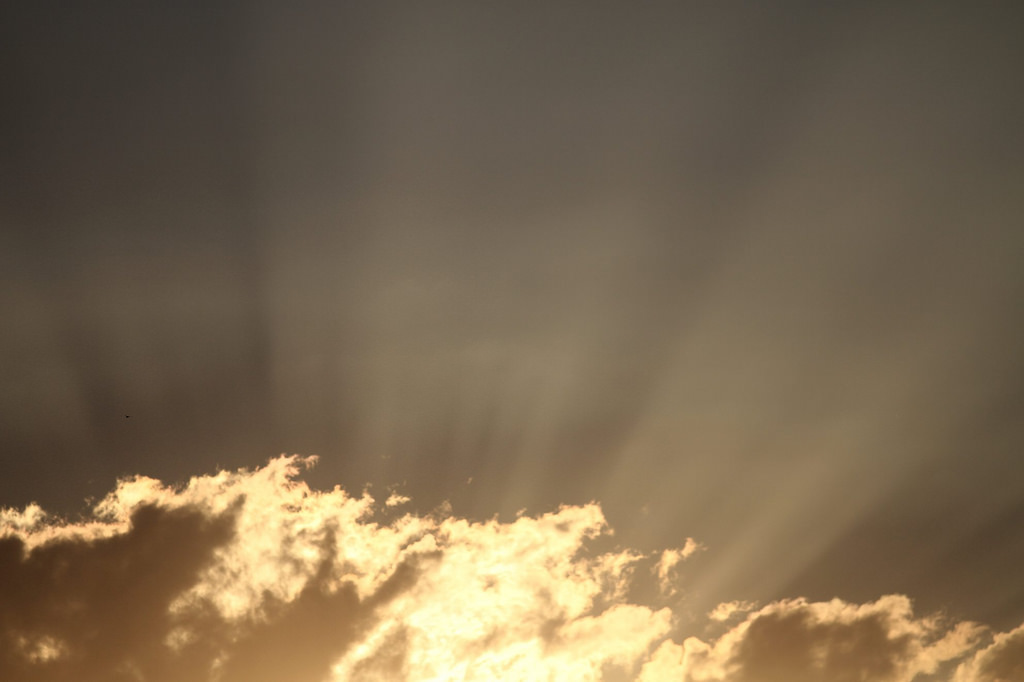If you want to know what it’s looked like lately to be the salt of the earth and the light of the world, Google the Women’s March of January 21, 2017. Regardless of your opinions, observations, or objections, this was a testament to and an embodiment of what you do when you truly believe that you are the salt of the earth and the light of the world. You just do it. You don’t debate it. You don’t second-guess it. You don’t wonder about it. You just go and be it. That’s Jesus’ point. Jesus doesn’t say think about it. He doesn’t say you will be, you may be, or try to be. No, you just are. You are salt and light. Period.
We need to be assured of this truth these days, especially the last seven days. The question is, do you know you are? Do you believe you are? Or do you doubt Jesus? Do you speculate that Jesus could not have possibly meant you? Do you think that Jesus might have been mistaken? Do you hesitate, wondering whether or not this is the right time or the right place? Have you convinced yourself that your voice can’t make a difference?
For too long, especially in the church, many of us have allowed our light to be hidden, even extinguished. And when that happens, so goes the truth of the Gospel along with our own.
The Women’s March was many things for me, but one thing was certain — it may have been the first time in my life that I truly believed Jesus’ words: “you are the salt of the earth and the light of the world.” Not that I didn’t believe Jesus — but that I didn’t believe he believed in me. As Reverend Amy Butler (lead pastor of Riverside Church in NYC) says, “Sometimes being nasty is the same as being holy. And protest can be prayer.” I have never marched for anything. Why? I have asked myself that question a lot these past months and so far, there is no indication that this interrogation will subside. But at least I know what I will do now.
I will no longer stand by and let the Gospel be taken over by those who seem to have a louder voice.
I will no longer hide under a bush afraid of what people might think.
I will not get over it. I will not succumb to “this too shall pass.” I will not let others tell me that I am making a big deal of things. To be consoled by “he didn’t really mean it.” To be placated by, “it’s just words.” To be made to believe that what I think, or what others think, and who I am, or who others are, is qualitatively less. Nor will I allow myself to be excused by my privilege — white, educated, heterosexual… And now I get to add to my privilege Christian. What irony. Who wanted to be called Christian when Christianity was just getting started?
So, I marched. I marched for the Gospel I believe in — the Gospel that tells me I am enough and insists that others are as well. The Gospel that says God needs me to be the salt of the earth. The Gospel that encourages me to speak up for those who have been silenced or have yet to find their voice. The Gospel that won’t let me stand on the sidelines but pushes me out into the world God loves so that others might know they are loved and welcomed and worthy.
The Gospel that is not a viewpoint. Not an opinion. Not an alternative fact. The Gospel that is a truth-teller.
For the Gospel does not censor. It does not silence the already oppressed. It does not cast suspicion on those who are other. It does not act out of fear. It does not bar membership. It does not legislate inclusion. It does not look aside and say that God’s earth isn’t hurting. It does not ban the perceived outsider. It does not build walls to keep others out.
No. The Gospel is a decry against empire, against power abused, against imperialism and narcissism and complicity. As I said last week, it is a call to action, a plea for resistance, when others are content to stand on the sidelines. “I don’t know the man” is not option these days. We know Jesus. And we need to preach Jesus.
Salt and light are also metaphors for vigilance. They are rarely, if ever, not present. And if they are absent, something is drastically wrong. Both are necessary — for health, for life.
Preaching in these times will require a kind of intentionality, a certain resolve, a commitment, not unprecedented, but unique. We can’t just interpret the text at hand and offer a simple focus about grace-filled thoughts on which our people might ponder for the week. I almost wonder if this section of Matthew’s Sermon on the Mount needs to be our mantra as preachers these days. You are the salt of the earth and the light of the world.
If you have lost your taste, if your light is barely visible, then you need to ask yourself why. What, or whom, do you fear? What or who has silenced you? When you signed on for this vocation, did you forget that what you might have to say could be met with resistance, even rejection? Maybe put it on a post-it note — on your computer screen, your mirror. Make it your screensaver.
You are the salt of the earth and the light of the world — and you are called, I am called, to help others believe the same.
Karoline

